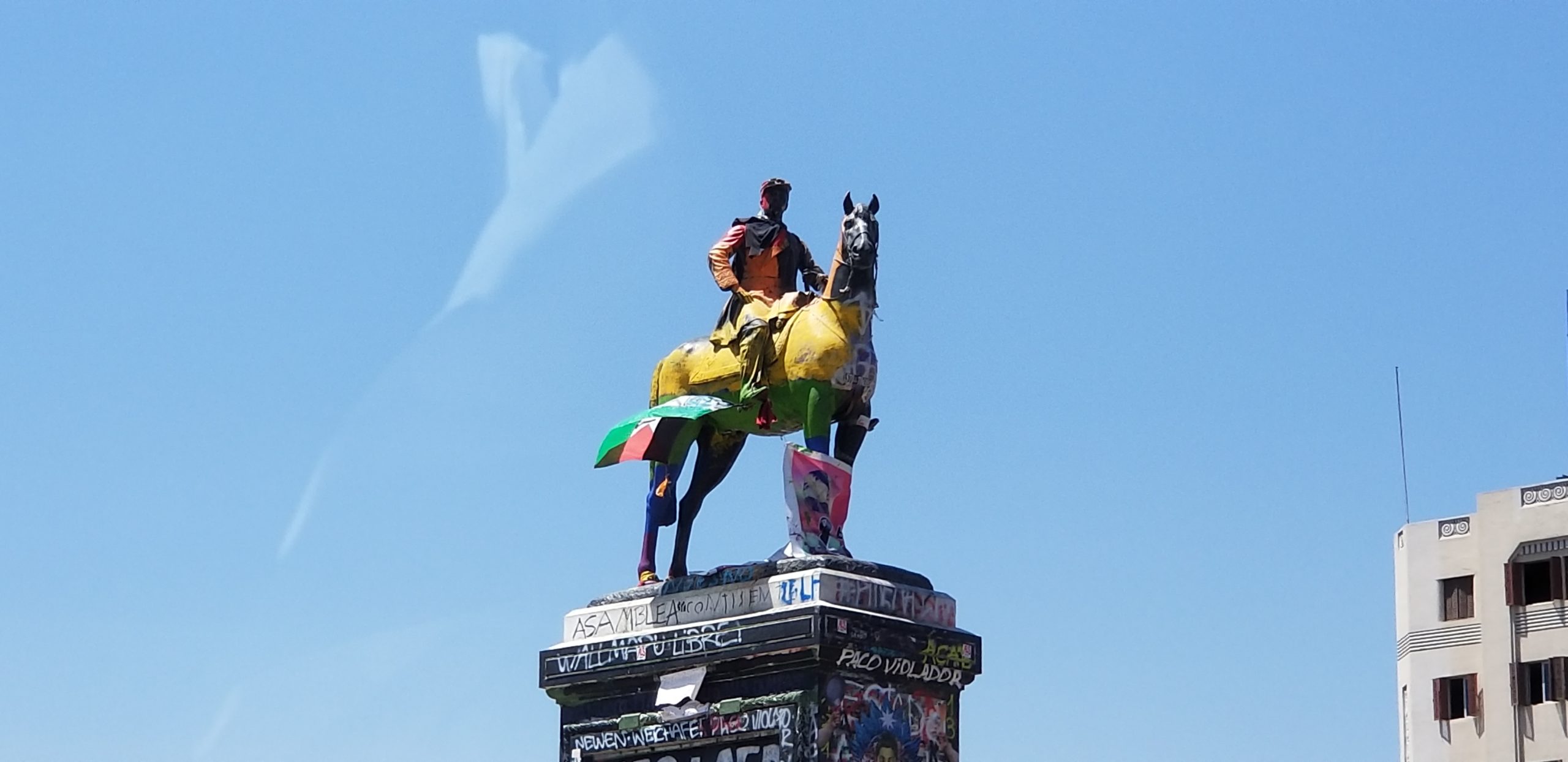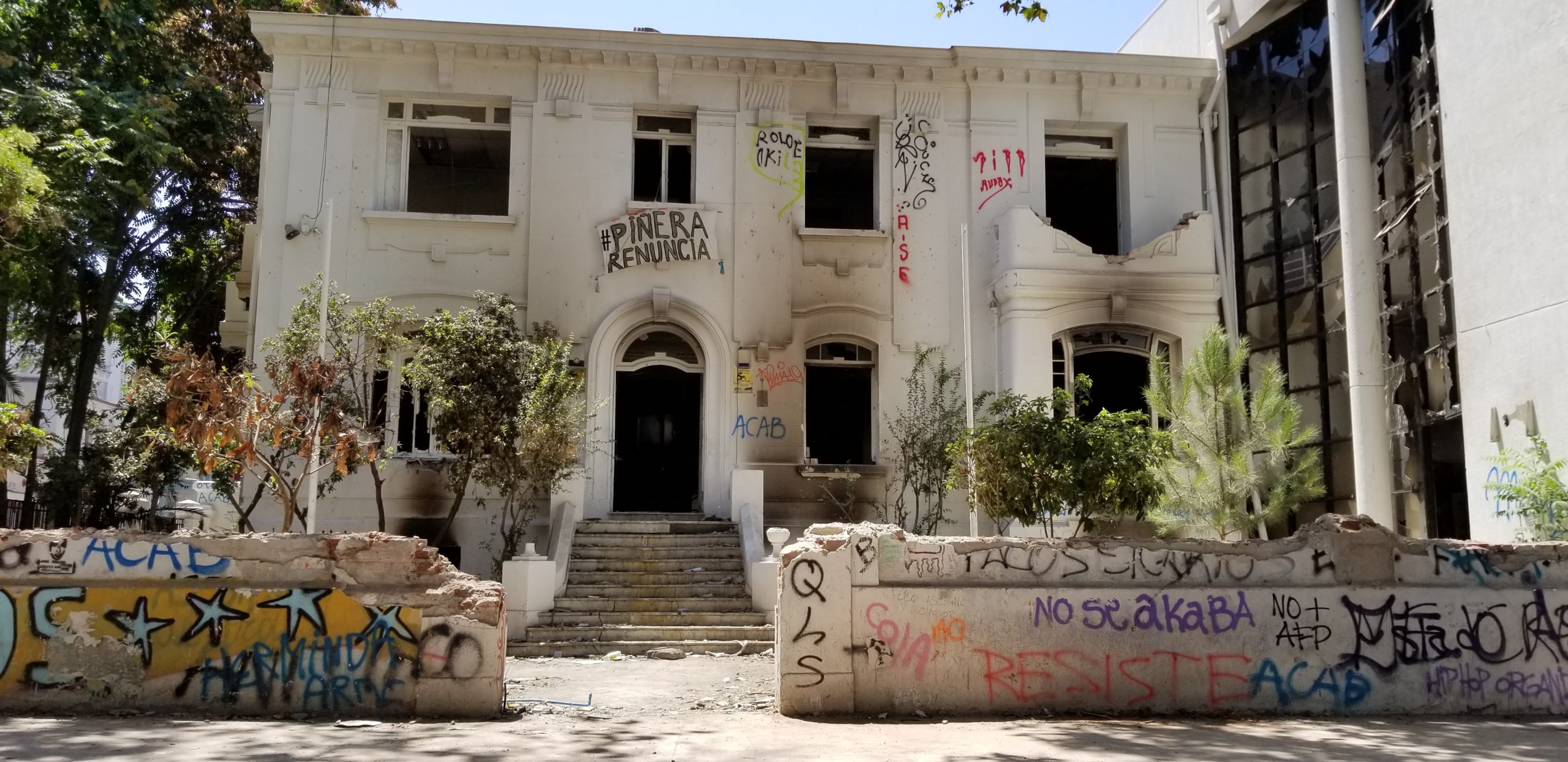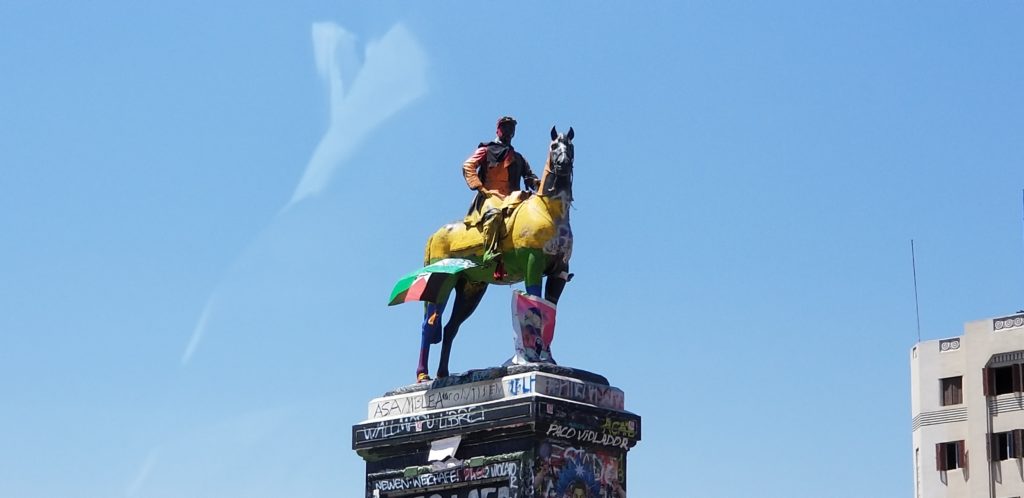One year after the social outbreak: A letter from the Theological Community of Chile
From the Theological Community of Chile
Dear sisters and brothers, in our work of ecumenical witness amid the pandemic and the theological-pastoral challenges of the 21st century:
Yesterday, October 18, we commemorated a year since the “Social Outbreak” in Chile. There is talk of a “before and after October 18, 2019” in Chile’s current political situation. It has been a time where demonstrations, demands, challenges, imagining the new have taken a large part of the agenda.
 Several alternatives have been opened from this process that was not seen before. However, others are still unaccounted for or have not been included despite intense demands to do so. A specific cause has to do with the pension model. Other topics of great importance and interest are education (free and excellent quality), universal healthcare, housing, and security. The demands also include water as a human right, the protection of the environment, the non-construction of thermoelectric plants, or the continuity of coal extraction as a resource used in various tasks. People advocate for the end of “sacrifice zones” for the poor people and corruption, especially among more affluent sectors.
Several alternatives have been opened from this process that was not seen before. However, others are still unaccounted for or have not been included despite intense demands to do so. A specific cause has to do with the pension model. Other topics of great importance and interest are education (free and excellent quality), universal healthcare, housing, and security. The demands also include water as a human right, the protection of the environment, the non-construction of thermoelectric plants, or the continuity of coal extraction as a resource used in various tasks. People advocate for the end of “sacrifice zones” for the poor people and corruption, especially among more affluent sectors.
Along with this, the demands for native peoples’ rights, including guaranteed seats in parliament, the LGTBI community’s rights, and recognition for gender equality and rights, have grown with outstanding support from citizens. Women struggle for access to all widespread instances of representation within the State’s structures. It is crucial to point out that women in various forms and specific demands have established themselves as fundamental actors in the new way of seeing, perceiving, and dreaming of the new country. Citizens promote the right of freedom to popular organization and participation, and the right to decide on issues of public importance through a peoples’ referendum and/or consultation.
Among all these demands arising from citizenship, not necessarily organized or articulated, a new social, political, and religious agenda has been generated. Without the social explosion, the demands and the current process would probably not have been possible. On the other hand, for a long time, the political parties’ traditional social actors had little case or dialogue with civil society. The absence and rejection of social activism is the best proof of how distant they are from the people. In other words, the so-called political class goes through one of the greatest crises of support and legitimacy in the country. That rejection of the country’s management has been part of the new scenario we are facing here.
October 18, 2020, marked a year since the protests began in Chile. There were many social initiatives, marches, meetings, where the most significant and symbolic was held in the Plaza de la Dignidad (thus renamed last year, former Plaza Italia or Baquedano). It was a meeting, celebration, where families, friends, acquaintances, and strangers came together. It was a time to remember the victims and renew the commitment to a more just, supportive, inclusive, respectful, and egalitarian country, a country where we all fit.
At the end of the day, there were violent acts, sadly depicted in two parishes’ burning. These facts have been denounced, rejected, and questioned by many and large sectors of society. They are sad events where various groups participate, organize, or converge towards worship places.
 It was sad to witness how the news mostly ended up showing only these facts. They chose to leave aside the other dimension of the anniversary. The anniversary was crucial and valuable because demands from last year still remain unanswered by the actors (State) who must respond and create the conditions to move forward in what Chile needs.
It was sad to witness how the news mostly ended up showing only these facts. They chose to leave aside the other dimension of the anniversary. The anniversary was crucial and valuable because demands from last year still remain unanswered by the actors (State) who must respond and create the conditions to move forward in what Chile needs.
Next Sunday, October 25, Chileans will vote in a plebiscite, also a product of the Social Outbreak. There will be a vote for two alternatives and two possibilities. People will vote on two options: to Approve or to Reject. Approving means definitely changing the Constitution inherited from the military dictatorship and still in force in Chile. Rejecting means continuing with the actual Constitution and making modifications to it. If “Approval” prevails, there are two possibilities to implement the changes. Constitutional assembly and/or hybrid assembly. The first means that all the constituents are elected by universal vote. In this case, 50% representation of women and men is also guaranteed. The second possibility implies that 50% of the constituents could come from political parties and 50% by popular election.
If Chileans vote for “Approval,” there will be a two-year process to redact and deliver the new Constitutional Charter. It would collect many of the debate today, which would open the possibility of writing a constitution outside of four walls or by the hand of the groups of the country’s political and social elite. There will also be a vote to approve or reject the final product of the process, that is to say, the new Constitutional Charter.
The topic that is on our agenda today is the plebiscite, and we trust that there will be widespread participation and that the result will be the best for our country. In that, we invite you to keep us in prayer and accompany our people and their organizations for the good and better development of this civic and democratic process.
May the Lord bless and keep you in everything.
In Santiago de Chile, on October 19, 2020
Dr. Daniel Godoy, President
Theological Community of Chile

